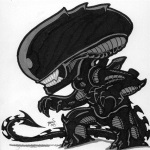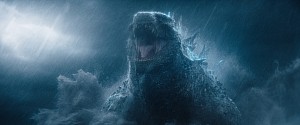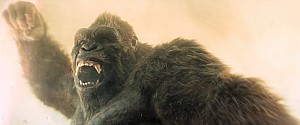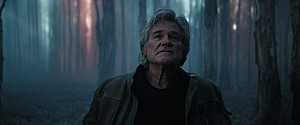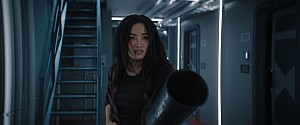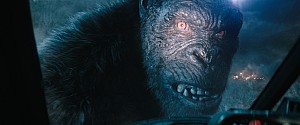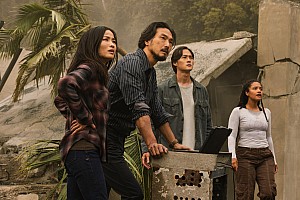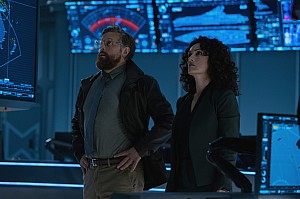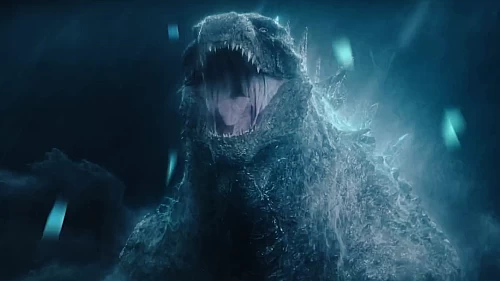Themes of the MonsterVerse Titans: An Essay
Godzilla Forum Topic
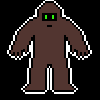
SasquaDash
MemberAnguirusApr 21, 202125850 Views41 Replies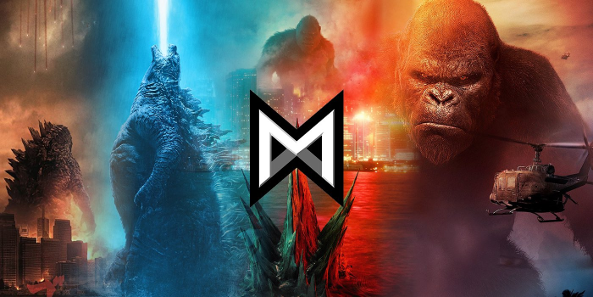
WARNING: SPOILERS!!!
A current debate amongst Godzilla fans and critics is if the MonsterVerse has any deeper meaning. Often the series is described as being nothing more than “dumb fun” or “entertaining nonsense”, being written off as something that “lacks substance”, with some fans looking down at the series accusing it of being inferior to the Toho movies due to it not having the same allegory of the originals. However, I feel that these criticisms are not entirely valid. I believe that the MonsterVerse and its titans do have meaning.
Godzilla and the other titans represent nature. The theme of the MonsterVerse is about humanity learning to coexist with nature and attempting to work with it rather than working against it. This was a big theme in King of the Monsters. Mark Russell initially wants to kill Godzilla, as he views him as nothing more than a destructive monster, however during the events of the film Mark realizes Godzilla's role in protecting the Earth and that mankind needs to view him as an ally and work with him in order to defend the world from being destroyed, leading to his line: "No, This Time We Join The Fight". In real life we are dealing with environmental destruction and if we don't learn to coexist with nature and if we keep destroying it, humanity and the rest of the planet will suffer. Ishiro Serizawa's sacrifice to revive Godzilla can be seen as humanity atoning for their past sins (waking up Ghidorah and nearly killing Godzilla with the oxygen destroyer) and making peace with nature, with Serizawa stating “He fought for us, died for us, he is not just proof of coexistence… he is the key to it”.
Godzilla is seen as a defender of the Earth fighting against anything that threatens the natural order and while he’s seen as a potential ally to humanity, he will not hesitate to put us in our place if we over step our boundaries, as seen in Godzilla vs Kong as well as in the older Toho films.

Mothra represents the beauty and grace of nature, though she proves that looks can be deceiving. While she is inherently benevolent she shows herself to be a formidable fighter taking on titans much larger than she is, showing that the most beautiful aspects of nature can also be extremely deadly. She is shown to be extremely loyal to Godzilla aiding him in battle, eventually sacrificing herself to re energize Godzilla, mirroring Serizawa’s sacrifice.

Rodan represents the dangerous and unpredictable side of nature. Michael Doughertry described him as being a “rogue” stating that “you’re unsure where his loyalties lie”. Being an unpredictable and volatile creature, Rodan is not that different from real life natural disasters, including the volcano that he resides in.

Ghidorah represents the destructive impact that we have on the world. His storms are a reference to real life atmospheric destruction. Scientists believe the damage that pollution has done to the atmosphere is causing weather to become more erratic and destructive, Ghidorah’s storms represent what could be a frightening real life consequence of nature’s destruction. Ghidorah also represents an other-worldly force disrupting the balance of nature, in the film he usurps the throne from Godzilla taking the title of “Alpha”. He then takes control of the other titans, waking them up and causing them to behave in a more erratic and destructive way. It is hinted in the film that the other titans are benevolent protectors, however because of Ghidorah’s control they are no longer behaving the way they’re supposed to, essentially disrupting their natural order.

Once Godzilla defeats Ghidorah and regains his title of Alpha, the titans revert back to their benevolent nature and one again become protectors of Earth. Ghidorah’s control threw off the natural balance, however Godzilla restored that balance, reflecting Serzawa’s line from 2014: “Nature has an order, a power to restore balance, I believe HE is that power”.

Kong represents humanity’s connection to nature. Being a primate he represents an evolutionary link between man and beast. Kong learning of the history of his species is akin to us learning of our own past. Throughout Godzilla vs Kong, he longs to find others of his kind and seemingly wants to find his place in the world, upon finding the Kong temple within the Hollow Earth, Kong finally discovers where he truly belongs and accepts the Hollow Earth as his home. Kong’s journey in the film reflects our own need to find our identities and where we belong in the world. At the beginning of the film, Monarch attempts to hold Kong within a containment dome, much to Kong’s annoyance. Monarch trying to contain Kong reflects humanity’s attempts to contain and control nature, however life cannot be contained, life will eventually break free.

The Titan war between the ancestors of Godzilla and Kong seems to have led to the destruction of the two species, just like how the endless wars and conflict in real life could lead to our own. During the end of Godzilla vs Kong, the two opposing sides are forced to work together for their own survival. The interesting thing to note is that Godzilla is the Japanese monster and Kong is the American monster. In Kong: Skull Island we learn of the fates of two World War II soldiers, Hank Marlow (an American soldier) and Gunpei Ikari (a Japanese soldier), when they are first stranded on Skull Island, they initially try to kill each other for no other reason other than the fact that they were on opposite sides of a war, however once they realized that survival on this strange, hostile island was more important than the war, they put aside their differences to work together, eventually becoming close allies. Marlow later states that: “If you take away the uniforms and the war, then he became my brother.” Godzilla and Kong ending their conflict in some way mirrors the relationship of Gunpei and Marlow, realizing that there is no reason for them to continue their ancestral war they put aside their differences to defend the world from a bigger threat. After defeating the threat Godzilla confronts Kong. However, Kong, not wanting to continue their war, drops his axe showing a sign of respect to Godzilla and symbolically ending the feud between their kind as they go their separate ways.

MechaGodzilla represents humanity’s attempts to control nature. In Godzilla vs Kong, MechaGodzilla is built so that humanity can kill the titans and regain control as the “APEX” lifeform. By basing their creation on Godzilla (who represents nature) APEX represents humanity’s longing to be equal or better than the forces of nature. They state that MechaGodzilla is “not just Godzilla’s equal...but his superior”, considering that the titans are comparable to living gods, this implies that APEX (and mankind) have the desire to not just be compared to gods, they want to be viewed as above them. However, they are soon reminded who is really in charge. To quote Serizawa’ other line from 2014: “The arrogance of man is thinking nature is in our control, and not the other way around”. Because of APEX’s arrogance and their use of Hollow Earth’s energy and Ghidorah’s brain to control their creation, MechaGodzilla goes haywire and turns on its creators and attempts to destroy humanity. MechaGodzilla’s rampage shows the consequences of mankind's greed and arrogance. By defying nature and the gods we created the instrument of our own destruction, harkening back to the origins of the Godzilla series, the atomic bomb.

However nature triumphed over technology, as Godzilla and Kong eventually defeated MechaGodzilla, showing that no matter how hard humanity tries to interfere with nature, the natural order will eventually win. “History shows again and again how nature points out the folly of man”.

Overall, I feel that the themes of the MonsterVerse and it’s titans are constantly being overlooked and doesn’t deserve to be written off as “dumb nonsense” by critics or fans. It has more meaning than people think and deserves to be viewed in the same way as the Toho films and not be completely discarded as “worthless Hollywood entertainment”.

Are you an avid Godzilla fan looking for a dedicated online community of likeminded fans? Look no further! Create your own profile today and take part in our forums and gain XP points for all the content you post!

